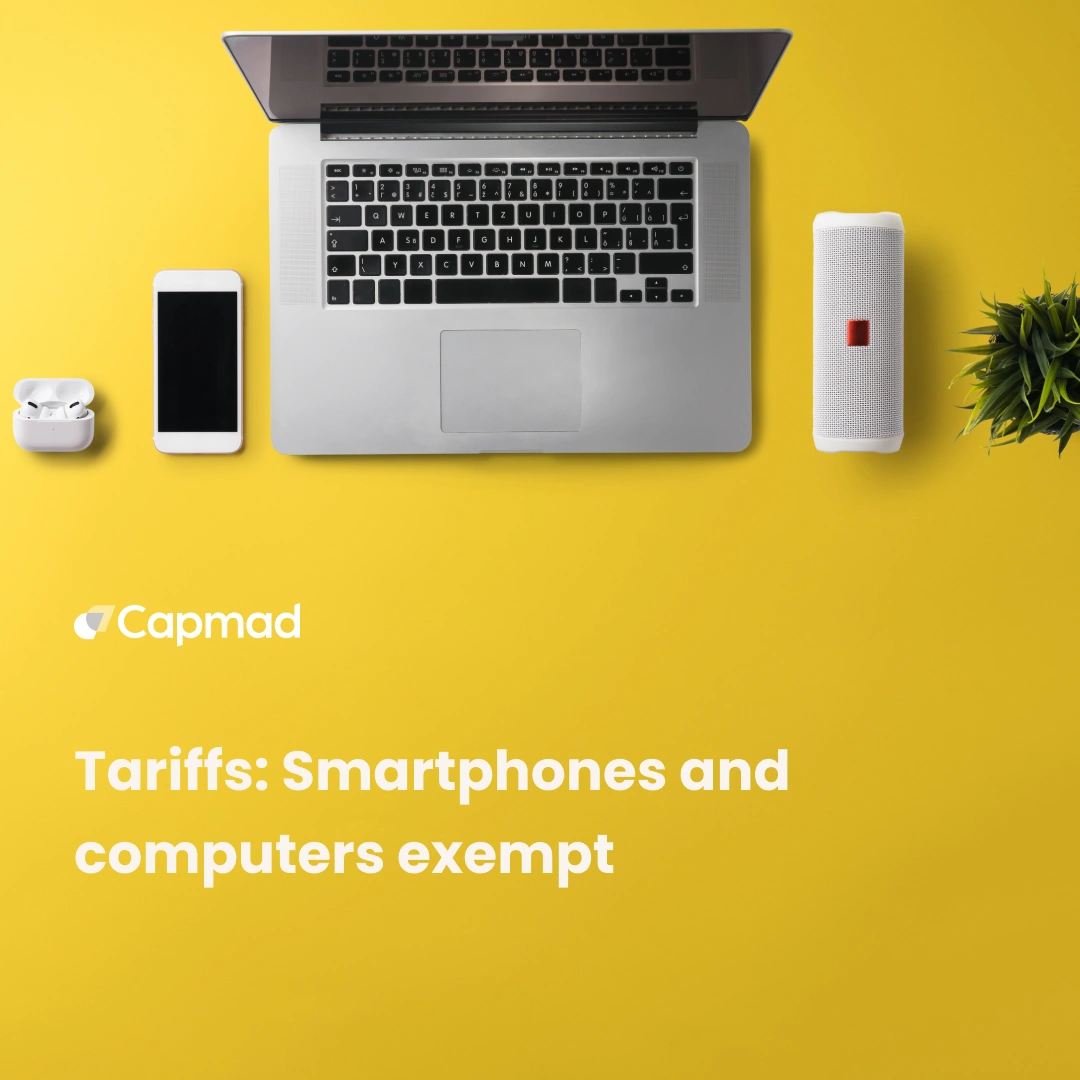The United States, under President Donald Trump, has decided to impose cumulative tariffs of 104% on Chinese imports starting Wednesday, April 9, 2025. This measure marks a significant escalation in the trade war between the world’s two largest economies.
Background and Details of the Tariffs
- Origin of the Tariffs: Initially, a 10% tariff was imposed on Chinese products, followed by a gradual increase. On April 2, Trump announced an additional 34% tariff, bringing the total to 54%. In response, China imposed 34% tariffs on American products.
- Further increase: Following this Chinese response, Trump added a 50% surcharge, bringing the cumulative rate to 104%.
- Motivations: The White House justifies these measures by persistent trade imbalances and insufficient Chinese efforts to combat fentanyl trafficking into the United States.
Economic consequences
- Consumer impacts: These duties could lead to higher prices for American consumers, with an estimated additional cost of approximately USD 418 billion if imports remain stable.
- Affected products: Affected categories include electronics (smartphones, computers), textiles, and various manufactured goods such as household appliances and toys.
- Market reactions: Global stock markets reacted negatively, fearing a contraction in international trade and an escalation of economic tensions.
Endless escalation?
Donald Trump is acting on his threats. The White House announced Tuesday that new US tariffs against China will reach a total of 104% starting Wednesday.
Last week, the US president announced that his new tariffs would reach 54% on Chinese goods starting Wednesday. He also warned that they could increase by an additional 50 percentage points if China reacted. Beijing has taken a hardline stance, imposing a 34% tariff on US goods starting Thursday.
Some voices, including those of French President Emmanuel Macron, are calling on Trump to reverse his decision to avoid escalating global trade tensions. This decision could have lasting implications for the global economy, exacerbating trade tensions and weighing on economic growth.
Beijing ends talks
For now, Beijing is ending talks in response to threats from Washington. A Foreign Ministry spokesperson stated that China rejects pressure, threats, and blackmail from the United States. “If the United States is truly interested in dialogue, it should adopt a stance based on equality, respect, and reciprocity.”
In a telephone conversation with Chinese Premier Li Qiang, Ursula von der Leyen, President of the European Commission, called for “preventing escalation.” She also called for a resolution through negotiations.






